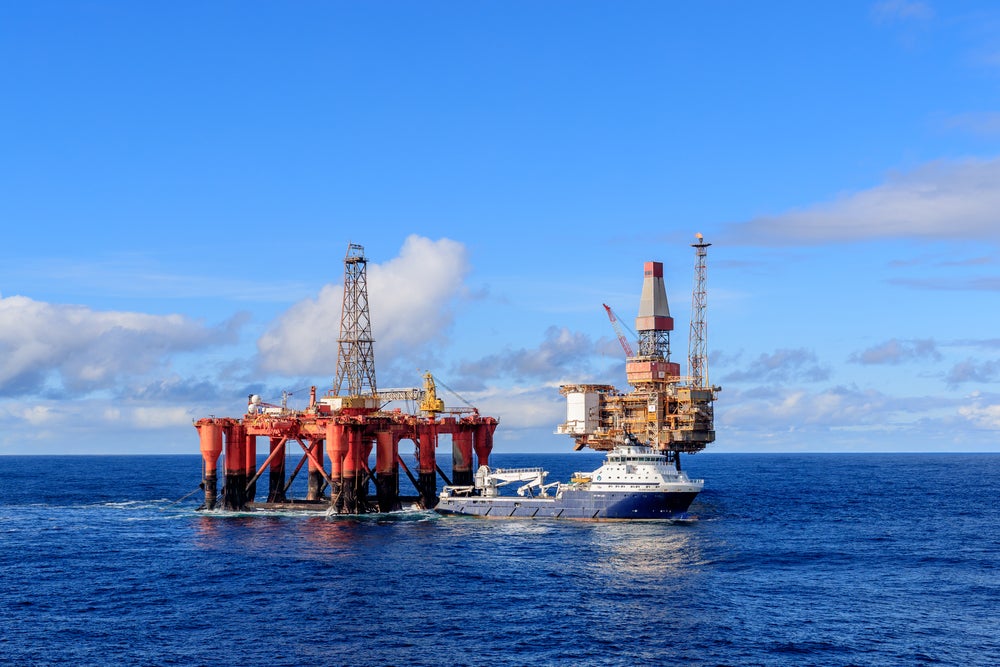
Over the past weeks, the effects of global warming on Europe have felt nothing less than apocalyptic: from birds falling to death in Italy, bludgeoned by gigantic hailstones, to Greece enacting its largest evacuation to date on the island of Rhodes due to raging forest fires.
Yet, we are very possibly experiencing the coolest summer of the rest of our lives, with governments across the world flagrantly ignoring the International Energy Agency’s stark message that there can be no investment in new oil and gas fields to remain within reach of keeping global warming to 1.5°C.

Discover B2B Marketing That Performs
Combine business intelligence and editorial excellence to reach engaged professionals across 36 leading media platforms.
A recent Energy Monitor investigation found that US oil extraction plans are set to blow its carbon budget five times over, while in the UK, the government is poised to announce its approval of the controversial Rosebank oil and gas field, the country’s largest undeveloped fossil fuel field.
In October last year, the UK held its 33rd oil and gas licensing round as part of the government’s efforts to shore up energy security following Russia’s invasion of Ukraine. The need for greater energy security has often been touted as justification for the development of new oil and gas fields. Data from Energy Monitor’s parent company, GlobalData, reveals that Rosebank and other undeveloped UK fields would indeed provide a production boost when added to remaining reserves in active fields as well as ‘planned’ fields that have already received a final investment decision (FID).
Whether this boost to production is worth the environmental cost is hotly contested. In February this year, the UK’s Climate Change Committee (CCC) wrote a letter to government in which it claimed that more domestic oil and gas extraction would have “at most, a marginal effect on prices”, recommending instead that the best way of reducing exposure to volatile energy markets is “cut[ting] fossil fuel consumption, improving energy efficiency, [and] shifting to a renewables-based power system”.
Meanwhile, research from campaign group Uplift reveals that gas from undeveloped UK oil and gas fields in the North Sea, including Rosebank, will deliver at most three weeks of energy to the UK per year, while oil would provide up to five years of oil demand, even if none of it were exported. In reality, most production from North Sea fields, along with Rosebank, which is joint-owned by Norwegian state oil major Equinor (40%), Canadian Suncor Energy (20%) and Israeli-owned Ithaca Energy (20%), is likely to be exported abroad, as is currently the case with 60% and 80% of North Sea gas and oil, respectively.

US Tariffs are shifting - will you react or anticipate?
Don’t let policy changes catch you off guard. Stay proactive with real-time data and expert analysis.
By GlobalDataFurther analysis of data from GlobalData reveals just how far burning oil and gas from Rosebank would threaten the UK’s climate targets. According to GlobalData, Rosebank contains the largest untapped oil and gas reserves of all proposed North Sea fields, with 370 million barrels of oil equivalent.
Keep up with Energy Monitor: Subscribe to our weekly newsletterUsing US Environmental Protection Agency (EPA) conversion figures – according to which one barrel of oil emits 0.43 tonnes (t) of CO₂ when burnt and 1,000 cubic feet of gas emit 0.0551t of CO₂ when burnt – Rosebank is likely to release 155 million tonnes of carbon dioxide (mtCO₂) into the atmosphere over its lifetime.
However, in a "balanced" net-zero pathway, as per the CCC's sixth carbon budget, emissions from fossil fuels fall 75% by 2035 from 2018 levels. In total, emissions from "fuel supply" – predominantly made up of fossil fuels – amount to 298mtCO₂-equivalent (mtCO₂e) between 2023 and 2050, meaning lifetime emissions from Rosebank are equivalent to more than half of the UK’s remaining carbon budget for total fuel supply.
Part of the reason that Rosebank is so controversial is that environmentalists fear its approval could set in motion the approval of scores of other oil fields currently under consideration by the UK Government. According to a report published last October by US-based non-profit Global Energy Monitor, emissions from burning the oil and gas found in the 20 largest UK North Sea fields expected to reach FIDs or receive development consent in the next three years could produce more than 920mtCO₂e, more than most countries in the world produce annually.
Read more from this author: Polly BindmanWere the UK to exploit all remaining reserves in undiscovered and undeveloped fields, in addition to active and planned fields, the expected 7,602mtCO2e in emissions would significantly exceed the UK’s remaining share of the global carbon budget for 1.5°C, at 3,330mtCO2e, Global Energy Monitor calculated.
If the UK proceeds with Rosebank, or other oil and gas developments, it would be forced to reduce emissions from other sectors to keep within its carbon budget.
Nevertheless, opposition leader Keir Starmer is already showing signs of retreating from his initial pledge to halt all new oil and gas production were he to become prime minister in the next UK general election in 2025. The Conservatives' surprise victory at the Uxbridge by-election last week was largely fought on the grounds of opposing the expansion of an Ultra Low Emission Zone. All this has exacerbated fears that British political leaders are turning their backs on climate change – with the potential impacts of further UK oil and gas extraction reaching far beyond the country's borders.





